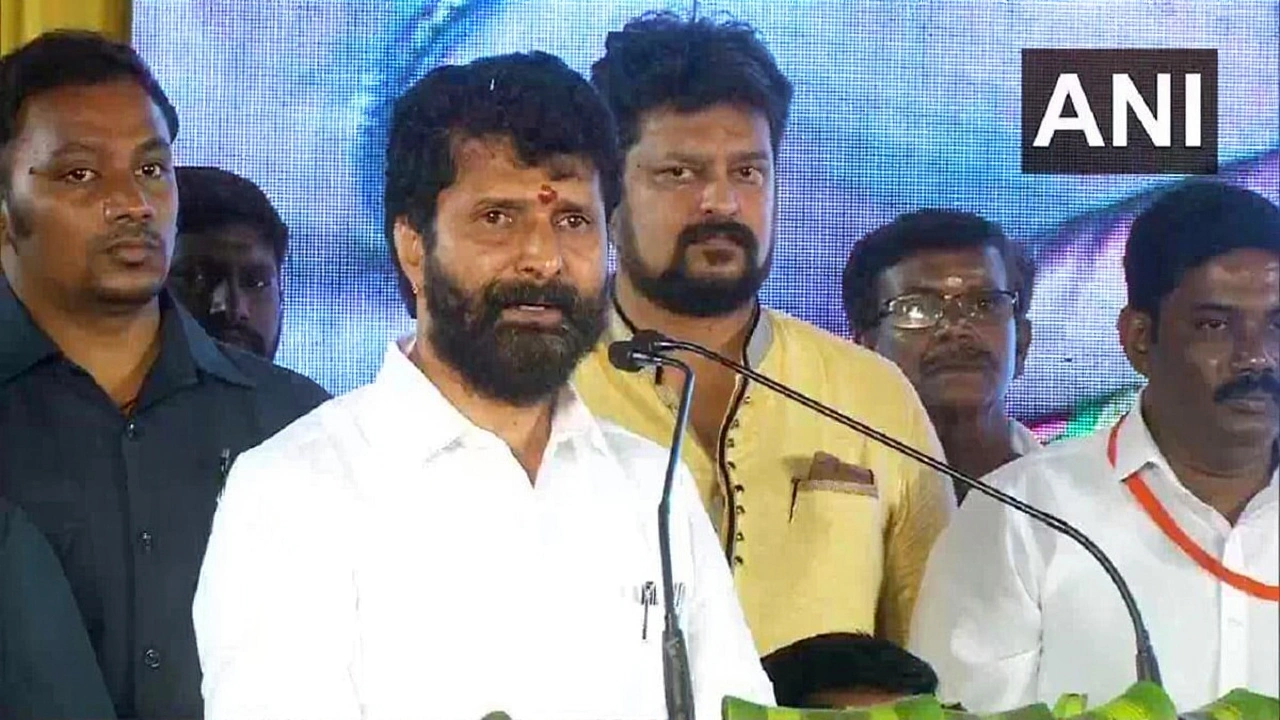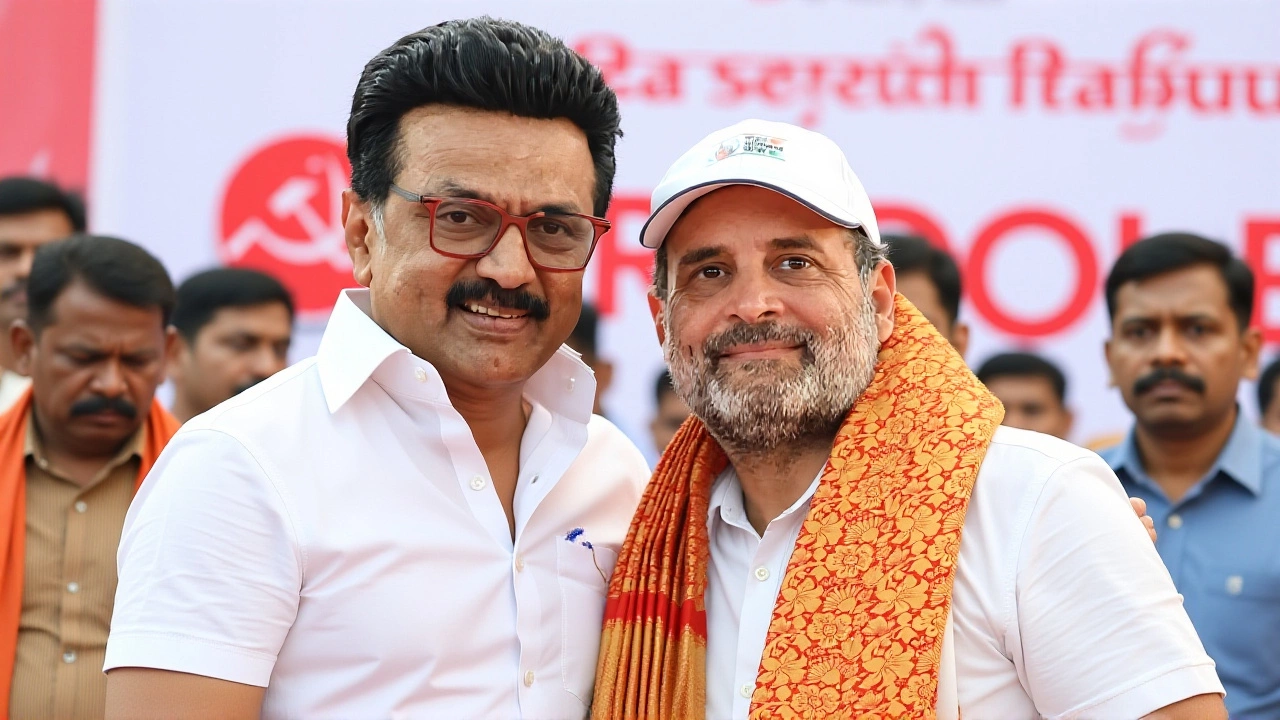Ex-Chennai Deputy Mayor Karate R. Thiyagarajan Joins BJP After Congress Suspension
 Nov, 24 2025
Nov, 24 2025
When Karate R. Thiyagarajan walked onto the stage at a packed public meeting in Chennai’s Mylapore on February 11, 2021, few expected the quiet, methodical bureaucrat-turned-politician to make headlines again. But he did — by formally joining the Bharatiya Janata Party (BJP), just months after being suspended by the Indian National Congress for alleged "anti-party activities." The moment was symbolic: National BJP Secretary presented him with his membership card, flanked by CT Ravi, in-charge of BJP Tamil Nadu, and state president L. Murugan. Thiyagarajan, once the face of Congress in southern Chennai, had come full circle — from municipal leadership to party exile, now back in power politics under a new banner.
From Mayor to Outcast: A Political Journey
Thiyagarajan’s political roots run deep in Chennai’s civic fabric. He served as the 38th Mayor of the Chennai Corporation from October 2002 to October 2006 — a tenure remembered for pushing sanitation reforms and public transport upgrades. But his ascent didn’t stop there. He later joined the Anna Dravida Munnetra Kazhagam (ADMK), then switched to Congress in 2010, where he became the party’s South Chennai district president. He was close to former Union Finance Minister P. Chidambaram, often seen as his political mentor. That connection gave him credibility — until it didn’t.
On July 26, 2020, the All India Congress Committee suspended him, citing "anti-party activities." The official statement was vague, but insiders whispered he’d been leaking internal strategy to rival factions. Even more telling: just weeks before the suspension, on July 15, 2020, Thiyagarajan had publicly confirmed rumors that actor-politician Rajinikanth would launch his own party in November 2020 — a move that threatened Congress’s hold on urban Tamil Nadu voters. Was he trying to position himself for Rajinikanth’s new outfit? Or was he simply speaking truth to power? The Congress didn’t wait to find out.
Why BJP? The Strategic Shift
The BJP has long struggled to make inroads in Tamil Nadu, where regional parties like ADMK and DMK dominate. But with the 2021 state elections looming, the party needed local credibility — and Thiyagarajan brought exactly that. A former municipal leader with grassroots networks, administrative experience, and a reputation for integrity (even among critics), he was a rare asset. His defection wasn’t just symbolic; it was tactical.
By recruiting him, the BJP signaled it was serious about building a non-DMK, non-ADMK alternative in urban Chennai. Thiyagarajan’s presence gave them access to middle-class, educated voters who’d previously seen the BJP as a North Indian party with little understanding of Tamil identity. His move also sent a quiet message to other Congress dissidents: if you’re sidelined, there’s a path elsewhere.

Post-Defection: The New Role
Thiyagarajan didn’t just join the BJP — he climbed fast. By February 2025, he’d been appointed BJP Tamil Nadu’s state secretary. And he didn’t hold back. On February 15, 2025, at a public rally in Chennai, he publicly criticized Nainar Nagendran, the BJP’s legislative party leader, for staying silent after Chief Minister M.K. Stalin made controversial remarks about Prime Minister Narendra Modi. "Silence isn’t neutrality — it’s complicity," Thiyagarajan told reporters. The comment went viral, drawing praise from BJP loyalists and ire from DMK supporters.
It’s a stark contrast to his Congress days. Back then, he was known for diplomacy. Now, he’s a blunt critic — perhaps because he has nothing left to lose. Or maybe, he’s finally found a party that lets him speak.
What This Means for Tamil Nadu Politics
Thiyagarajan’s defection isn’t just about one man changing parties. It’s about the erosion of Congress’s base in urban Tamil Nadu. Once a powerhouse in Chennai’s civic and political circles, Congress has lost its grip on the middle class — especially among those who value governance over identity politics. Thiyagarajan’s move reflects a broader trend: experienced administrators are abandoning traditional parties for ones that offer real influence.
The BJP, meanwhile, is betting that figures like him can help them rebrand — not as outsiders, but as custodians of clean governance. If they can attract more technocrats, former bureaucrats, and civic leaders like Thiyagarajan, they might finally break the two-party duopoly in Tamil Nadu. But it’s a long road. Regional pride runs deep. And the DMK and ADMK still control the narrative.

What’s Next?
Thiyagarajan is now in his 70s. He won’t run for chief minister. But he could be the architect of a new generation of BJP leaders in Tamil Nadu — mentoring young candidates, shaping policy platforms, and quietly building a network that outlasts him. The BJP’s next big test? Can they turn his symbolic entry into a structural shift? If they do, the political map of Tamil Nadu could change faster than anyone expects.
Frequently Asked Questions
Why was Karate R. Thiyagarajan suspended by the Congress in 2020?
The Indian National Congress suspended Thiyagarajan on July 26, 2020, for "anti-party activities," though no formal charges were detailed. Reports suggest he leaked internal party plans, including his public confirmation in July 2020 that actor Rajinikanth would launch a political party that November — a move that threatened Congress’s electoral strategy in urban Tamil Nadu.
What role does Thiyagarajan now hold in the BJP?
As of February 2025, Thiyagarajan serves as the State Secretary of the BJP in Tamil Nadu. In this role, he oversees organizational strategy, public outreach, and internal discipline — a significant position given his administrative background and deep roots in Chennai’s civic politics.
How did Thiyagarajan’s tenure as Chennai Mayor impact his political image?
His term as Chennai Corporation’s 38th Mayor (2002–2006) earned him a reputation for efficiency and transparency, particularly in sanitation and public infrastructure. Unlike many politicians, he was seen as a technocrat, not a populist — a quality that still resonates with urban voters today, even as he shifts party lines.
Why is Thiyagarajan’s switch to BJP significant for Tamil Nadu?
His defection signals that the BJP is gaining traction among non-DMK, non-ADMK voters — particularly educated, middle-class professionals disillusioned with traditional regional parties. Thiyagarajan brings credibility, administrative experience, and a network in South Chennai, areas where BJP has historically struggled to build a base.
Did Thiyagarajan have any ties to Rajinikanth’s political ambitions?
Yes. In July 2020, Thiyagarajan publicly confirmed that Rajinikanth planned to launch a political party in November 2020. Though Rajinikanth later shelved those plans, Thiyagarajan’s early endorsement suggested he was positioning himself as a bridge between civic leaders and celebrity politics — a move that may have contributed to his suspension by Congress.
What’s the likelihood of BJP gaining major ground in Tamil Nadu because of this?
One defection won’t flip the state, but Thiyagarajan’s entry could be the start of a longer trend. If BJP can recruit more former bureaucrats, municipal leaders, and non-partisan professionals like him, they might chip away at the DMK-ADMK dominance — especially in urban centers like Chennai, Coimbatore, and Madurai.